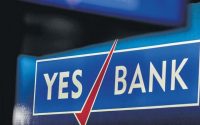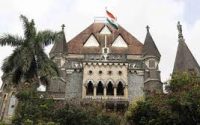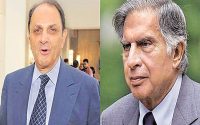Bombay High Court reserves judgment in PILs challenging Mumbai Coastal Road project
Source: barandbench.com
The Bombay High Court on Monday reserved judgment in a batch of Public Interest Litigations (PILs) challenging the Brihanmumbai Municipal Corporation’s (BMC’s) Coastal Road Project worth Rs 14,000 crore.
The Coastal Road project will connect South Mumbai’s Marine Drive area to Kandivali in North Mumbai. The project was challenged by environmental activists, residents and the fishing community from Worli Koliwada.
The PILs seek to quash the decision of the BMC to implement the project and the Coastal Regulation Zone (CRZ) clearance granted for it on May 2017 by the Ministry of Environment, Forests and Climate Change (MoEFCC).
A Division Bench of Chief Justice Pradeep Nandrajog and Justice NM Jamdar reserved judgment in the matter after hearing final arguments on a daily basis starting June 17.
The petitioners have objected to construction and reclamation work on the proposed 10 km-long southern part of the Coastal Road from Marine Lines to the southern entry point of the. Bandra-Worli Sea Link. The petitioners contend that the project was not given environmental clearance and that it will damage the coastal ecosystem, including the rare species of corals under the sea.
It was also argued that the project would result in depriving the fishing community of its source of livelihood. Appearing for the petitioners, Senior Advocate Janak Dwarakadas challenged the reclamation work in South Mumbai on the ground that it would result in damage to the coastline, destroy marine life, and affect the livelihoods of the fishing community.
He argued that the project lacks several clearances and permissions including those from the MoEFFCC, the Maharashtra State Coastal Zone Management Authority, and the Mumbai Heritage Conservation Committee.
He emphasised that the public hearings required to be held before environmental clearances are granted, were not conducted. He also pointed out that the recommendations by the Environmental Assessment Committee were cleared within a day without any application of mind.
Further, it was submitted that the BMC had initially applied for approvals for the entire 35-km-long project. However, when they were refused approvals, they split the project into two, and sought permission for the south and north coastal road, stating that they were two separate projects.
The state and the BMC countered that no environmental clearance was required for the South Coastal Road, as it is a linear road and not an area development project. The BMC also asserted that the project has got CRZ permissions.
Appearing for the BMC, Senior Counsel Darius Khambata argued that the Coastal Road project tries to resolve the issue of traffic congestion in Mumbai and that millions of citizens were in support of it.
On June 29, the Central Government had also made a similar argument that the Coastal Road will ease traffic congestion in Mumbai. Additional Solicitor General Anil Singh told the Court,
“It takes around three hours to travel from Churchgate to Borivali by road during peak hours and very few people use public transport. Once the coastal road is constructed, the entire load will reduce.”
In April this year, the High Court had restrained the BMC from carrying out any further work on the project. This prompted BMC to file an appeal in the Supreme Court.
In May, the Supreme Court allowed the corporation to carry out existing work, but prohibited it from carrying out any new work. It also directed the Bombay High Court to take up the matter for final hearing. This order is to be in effect until the Bombay High Court pronounces its judgment.



